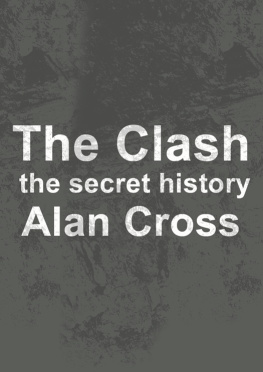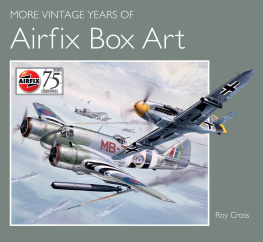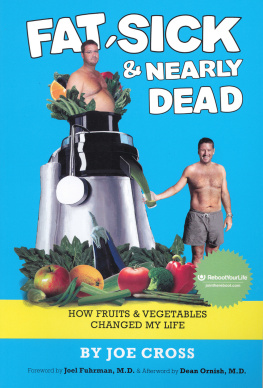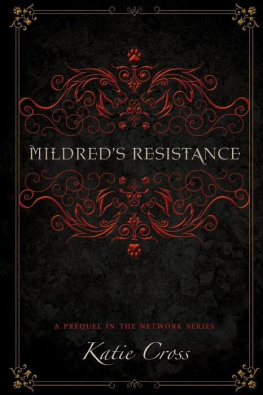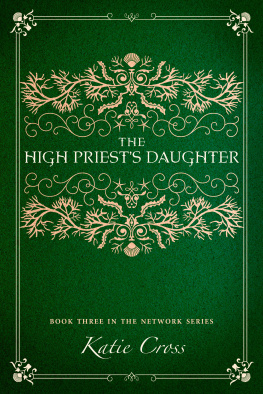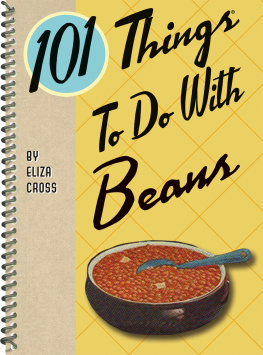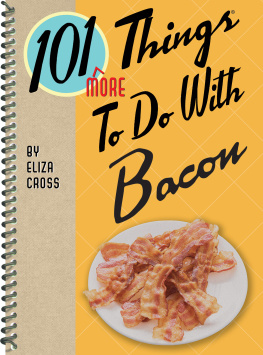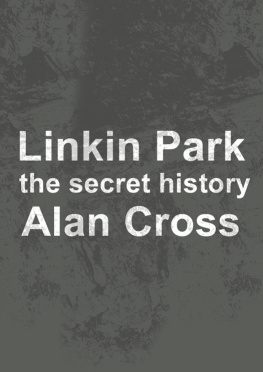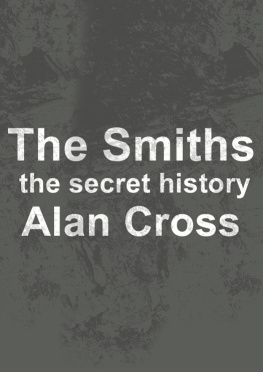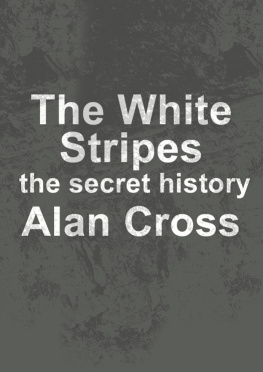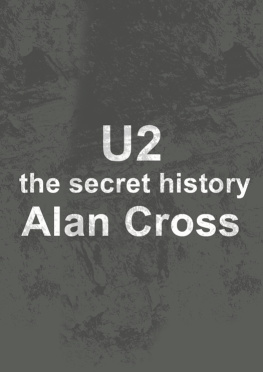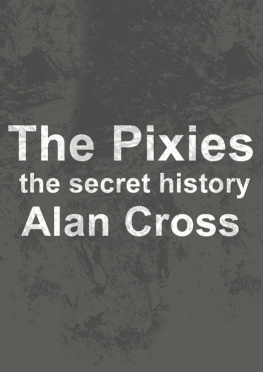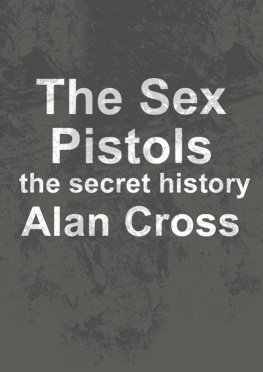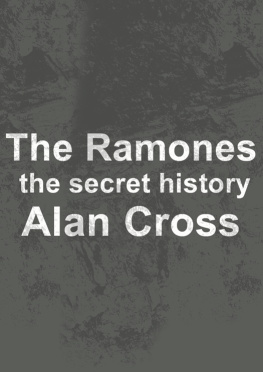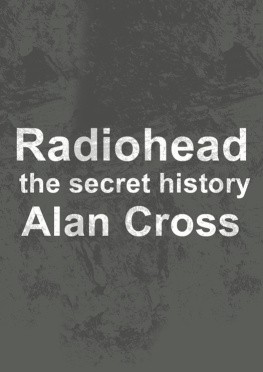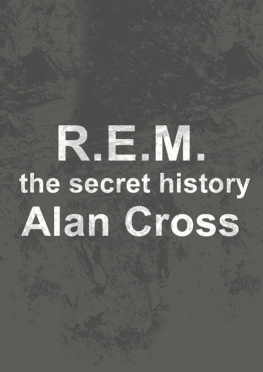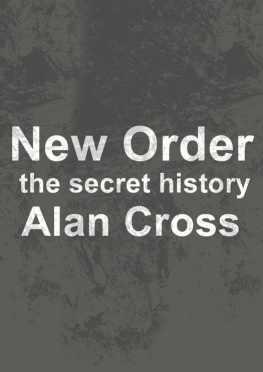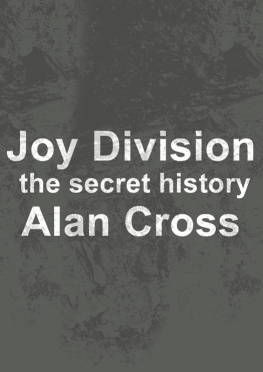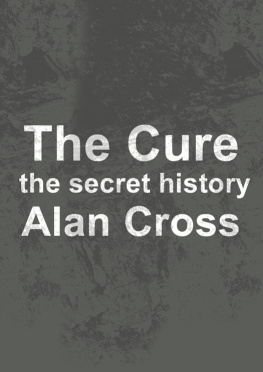Cross - The clash: the secret history
Here you can read online Cross - The clash: the secret history full text of the book (entire story) in english for free. Download pdf and epub, get meaning, cover and reviews about this ebook. year: 2011;2014, publisher: HarperCollins Canada;Audio Joe, genre: Detective and thriller. Description of the work, (preface) as well as reviews are available. Best literature library LitArk.com created for fans of good reading and offers a wide selection of genres:
Romance novel
Science fiction
Adventure
Detective
Science
History
Home and family
Prose
Art
Politics
Computer
Non-fiction
Religion
Business
Children
Humor
Choose a favorite category and find really read worthwhile books. Enjoy immersion in the world of imagination, feel the emotions of the characters or learn something new for yourself, make an fascinating discovery.
- Book:The clash: the secret history
- Author:
- Publisher:HarperCollins Canada;Audio Joe
- Genre:
- Year:2011;2014
- Rating:5 / 5
- Favourites:Add to favourites
- Your mark:
- 100
- 1
- 2
- 3
- 4
- 5
The clash: the secret history: summary, description and annotation
We offer to read an annotation, description, summary or preface (depends on what the author of the book "The clash: the secret history" wrote himself). If you haven't found the necessary information about the book — write in the comments, we will try to find it.
Cross: author's other books
Who wrote The clash: the secret history? Find out the surname, the name of the author of the book and a list of all author's works by series.
The clash: the secret history — read online for free the complete book (whole text) full work
Below is the text of the book, divided by pages. System saving the place of the last page read, allows you to conveniently read the book "The clash: the secret history" online for free, without having to search again every time where you left off. Put a bookmark, and you can go to the page where you finished reading at any time.
Font size:
Interval:
Bookmark:
In its infancy, punk was limited to two recurring basic themes. The first was the nihilism preached by the Velvet Underground, the Ramones and, in their dumber moments, the Stooges. The second was various shades of spiritual and political anarchy. This was the gospel according to the Sex Pistols, Patti Smith and, when they were feeling surly, the Stooges. But then, in June 1976, the Clash appeared. More political than the Pistols and less goofy than the Ramones, it wasnt long before their fans anointed them the only band that matters.
At first, the Clash followed the standard bees-and-buzz-saw power chord, fuck-off-and-die approach of their contemporaries. However, by the time of punks second summer, the Clash were a band to be taken seriously. Not only had their music developed beyond the basics, incorporating elements of reggae, dub and rockabilly, but the Clash also combined punk sensibilities with political awareness, social observation and personal integrity. Instead of just wanting to destroy the system indiscriminately (or being indifferent to it), the Clash were protesters, revolutionaries on a mission to fight injustice and racism while preaching the truth. Abrasive, ambitious and politically correct (or incorrectthe Clash often displayed some glaring political inconsistencies), the Clash broadened the base of the punk movement. In doing so, Clash formed the important third leg of the holy punk trinity with the Ramones and the Sex Pistols.
the group were never able to get it together long enough to play a proper gig.
One of the last people to join the group was Paul Simonon (born December 15, 1955), an art school student who had never played an instrument before. But he didnt consider that much of a handicap because he thought he was applying for the position of lead singer. Forced to fake his way on bass through Jonathan Richmans Roadrunner, he somehow demonstrated the right stuff (his good looks didnt hurt; he would eventually be voted one of the worlds hunkiest men in Playgirl) and was allowed to join. Still short a singer, they approached Joe Strummer (born John Graham Mellor, August 21, 1952) just after he finished a gig at the Red Cow pub with his band, the 101ers. The offer came at just the right time. Strummer had grown disenchanted with the direction of the 101ers and was looking for a new band. On June 6, 1976, less than 24 hours after Jones made the offer, Strummer agreed to join this new, nameless group.
In this warehouse, the still-unnamed band auditioned a parade of drummers. The band somewhat reluctantly chose Terry Chimes (born January 25, 1955), who had failed to make the cut for the London SS several months earlier.
It was Paul Simonon who came up with the name. The group had been experimenting with dozens of names: the Weak Heart Drops, the Outsiders, the Psycho Negatives, the Phones, the Mirrors. The debate was settled after Simonon stumbled on a headline in the Evening Standard about a clash with police. When he suggested that they call themselves the Clash, the others immediately agreed.
On July 4, 1976, at the exact same moment the Ramones were playing their historic gig at the Roundhouse in London, the Clash made their first official appearance: an unannounced opening slot for the Sex Pistols at the Black Swan in Sheffield. Their second show was just as low-key. On August 13, some friends and three music writers were invited to Rehearsal Rehearsals see the group run through a couple of dodgy originals. Most witnesses left impressed by the Clashs sense of honesty and raw energy.
Encouraged by growing fan support, the Clash forged ahead, agreeing to several dates with the Sex Pistols including a set during the 100 Club Punk Rock Festival in September. These were the last shows with guitarist Keith Levene. He was more or less booted from the band for not exhibiting the discipline expected from a member of the Clash. (He also had problems with drugs.)
Now a four-piece, the Clash played wherever and whenever they could throughout the rest of 1976which is to say they didnt get much work. Touring on a bill with the Sex Pistols (a group banned from playing virtually anywhere) meant Clash performances were few and far between. When they did get to play, Terry Chimes disliked the violence. After a thrown wine bottle narrowly missed his head during a show, Chimes decided that he had had enough of the violence and the political posturing. His replacement was a drummer named Rob Harper (born c. 1955). Meanwhile, the other three members found themselves so short of cash that they often had to eat the flour-and-water paste they used for gluing up their posters.
The good news was that Bernie Rhodes was determined to outdo his old boss, Malcolm McLaren, who managed the Sex Pistols. When the Pistols signed the first of their aborted record contracts, Rhodes was driven to find a better deal for the Clash. On January 25, 1977, he was successful, arranging a worldwide deal with CBS for 100,000 that trumped Polydors offer of 25,000. Vowing to corrupt the record industry from within, the band nevertheless faced fierce criticism from hardcore punk compatriots who accused them of selling out.
Having met his obligation to help the Clash through their debut album, Chimes once again took his leave, forcing the band into another long round of auditions. Legend has it that they went through 206 hopefuls, finally settling on applicant number 207: Nicky Topper Headon (born May 30, 1955), another one-time London SS reject and a recent hire of rock guitarist Pat Travers. With this four-piece lineup, the Clash stormed Britain headlining the White Riot tour, a road trip that ended with a London audience literally tearing the seats from the floor of the Rainbow Theatre and tossing them onstage.
By the summer of 1977, the Clashs fan base was exponentially larger than it had been just a few months earlier. The blistering live shows and powerful lyrical messages had been amplified by the bands carefully managed image as honest truth-seekers. The Clash were also very serious about remaining affordable, insisting that the price of their records and concert tickets be kept lower than the going market rate. To the kids caught in the crossfire of Margaret Thatchers right-wing policies and the awful economy of late-70s Britain, the Clash seemed to articulate their frustrations.
It also didnt hurt that the Clash had their own well-publicized (albeit minor) scrapes with the law. On June 10, 1977, both Strummer and Headon were arrested for spray-painting the groups name on a wall. When they were booked, it was discovered that they had both failed to appear before a magistrate on a charge of stealing a pillowcase from a hotel. That resulted in a night in jail and a 100 fine. The following October, the entire band spent an afternoon in a German jail over an unpaid hotel bill. Then in February 1978, police vehicles and helicopters responded to a call in Camden and arrested Simonon and Headon for shooting down racing pigeons with pellet guns from the window of their warehouse. That cost them 800.
On October 21, 1978, lawyers for the Clash informed Rhodes that his services would no longer be required. Rhodes responded with a lawsuit, claiming that he had a management contract guaranteeing him 20 percent of the groups earnings. Just days before Give Em Enough Rope was scheduled to hit the stores (November 10, 1978), Rhodes persuaded a judge to order all the Clashs money routed directly into his account. This legal battle dragged on for a couple of years. Meanwhile, Rhodess management duties were assumed by Caroline Coon, a writer for Melody Maker and a longtime fan of the groupnot to mention Paul Simonons live-in girlfriend.
Following a brief UK road trip (sarcastically dubbed the Sort It Out tour), the Clash made plans for their first tour of North America. Beginning with a show in Vancouver (with Bo Diddley as their opening act), the Pearl Harbor 79 tour swung through San Francisco, Los Angeles, Texas, Washington, DC, New York and Toronto, collecting converts along the way. By the time the Clash headed back to England,
Font size:
Interval:
Bookmark:
Similar books «The clash: the secret history»
Look at similar books to The clash: the secret history. We have selected literature similar in name and meaning in the hope of providing readers with more options to find new, interesting, not yet read works.
Discussion, reviews of the book The clash: the secret history and just readers' own opinions. Leave your comments, write what you think about the work, its meaning or the main characters. Specify what exactly you liked and what you didn't like, and why you think so.

